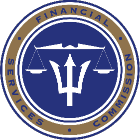

The Basics of Budgeting
In learning to become financially literate, learning to budget is one of the first steps. This means developing a plan for your money to manage your spending based on your income. Broadly speaking, budgeting helps you keep track of how you’re spending your money, set priorities, and avoid overspending.
To start budgeting, begin by listing all your income sources including salary, money from side jobs, or passive income streams. Next you will need to break down all your expenses being sure to include essentials such as rent or mortgage payments, utilities, groceries, transportation, and insurance. This should really be done based on the timing of your funds coming in. For example, if you are paid weekly, a weekly budget may be more practical. But generally, a monthly budget is more common as this is typically when expenses come due. Once you have documented how much you’re spending and how much you’re earning, you have made a good start.
In setting out all your income and expenditure information in this way you are in a better position to:
- See whether you are in a good position to cover your debts and essentials
- See how much you have left to allocate to discretionary spending such as eating out, entertainment, savings and other personal spending.
At the end of the month, you should also look back at that period of spending to see how it compares to the information that you set out. If you find that your expenses exceed your income, look for areas where you can cut back. This might highlight a need for you to reduce your discretionary spending or find ways to save on groceries. The main goal is to live within your means and build savings towards the future or emergencies that may arise.
You will find that by sticking to a budget, you will avoid accumulating unwanted debt and build a strong foundation for your financial future. This process may seem a bit onerous at first. But once you start, you will have more control over your finances and be more effective at managing your money.
Written by Gayle Marshall, Director - Strategic Projects



